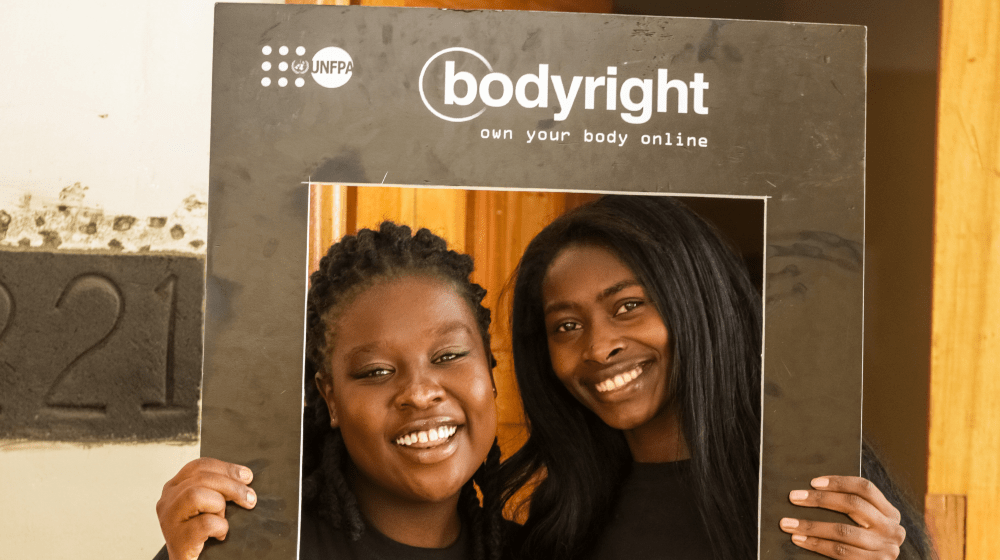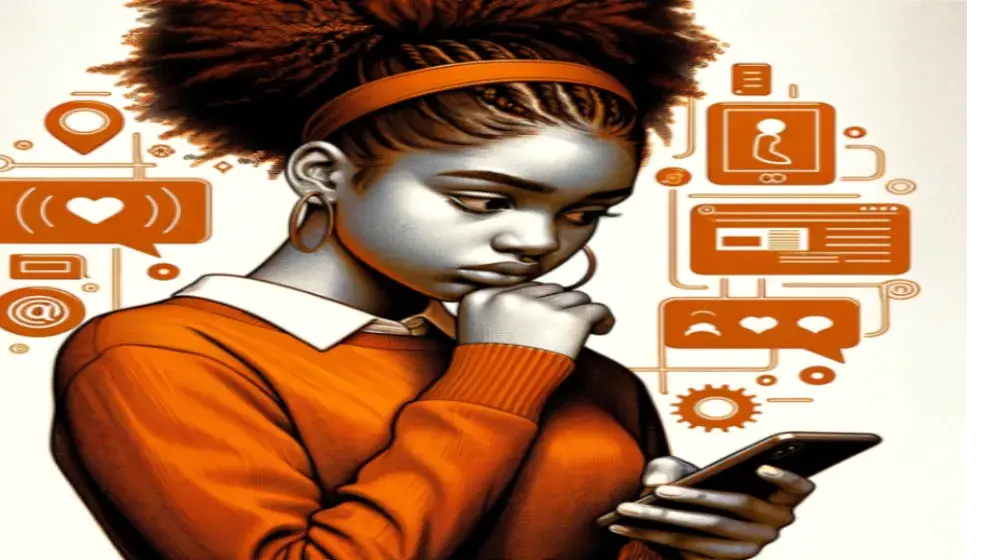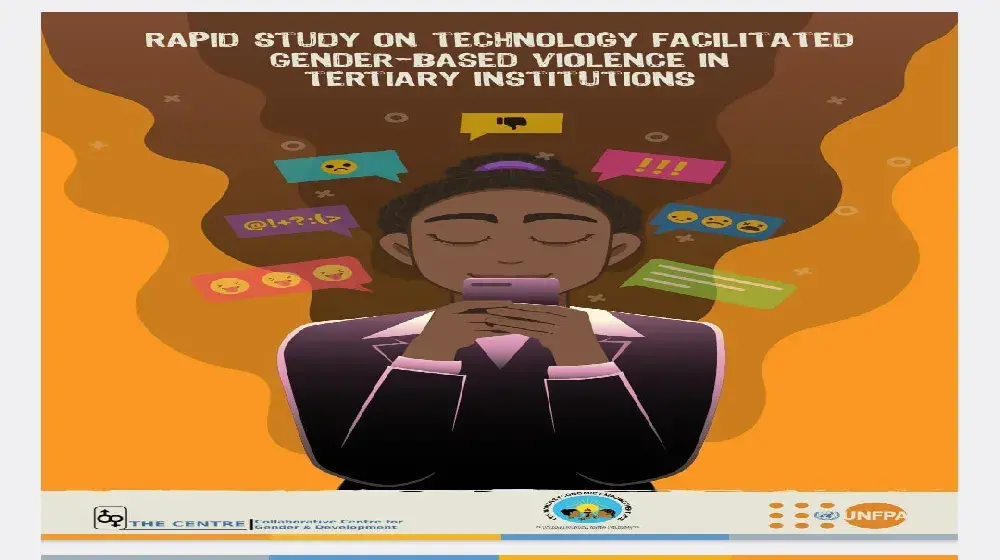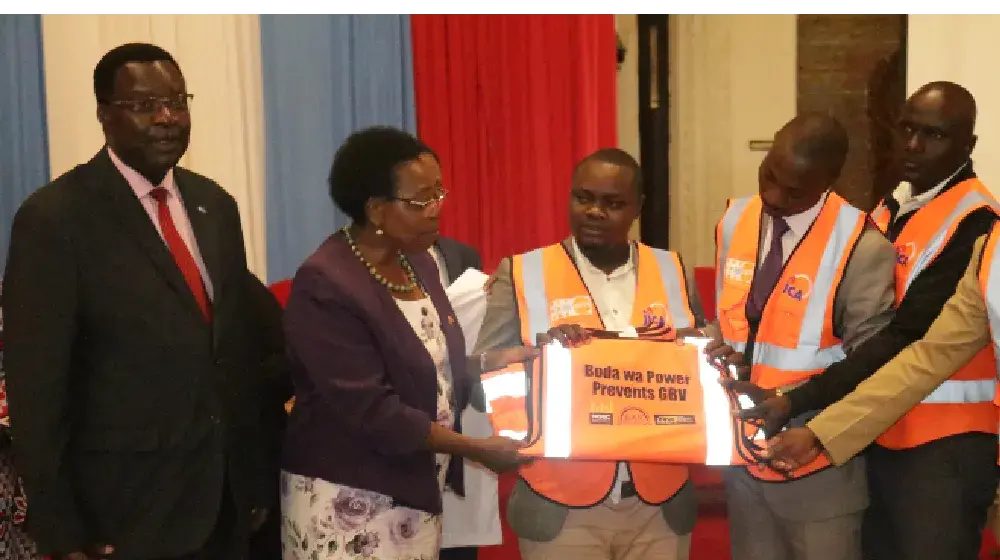“Every time I remember what happened to me during that time, I get emotional,” says 21-year-old Yvonne Ngang’a, a medical student at Kenya’s Egerton University. Her experience with online harassment and cyberbullying began during the school election period when she decided to back one candidate for a student leadership position over another.
“I posted a message in our class WhatsApp group saying that I liked the plans this particular candidate had outlined in his manifesto,” says Yvonne. “What followed was weeks of harassment meant to humiliate me. It started with a male student making a vulgar comment about the shape of my breasts. Others joined in, verbally attacking my body, and telling me to shut up about the elections,” she says. The comments took a toll on Yvonne who decided to retreat to her off-campus residence, switching off her phone for a few days.
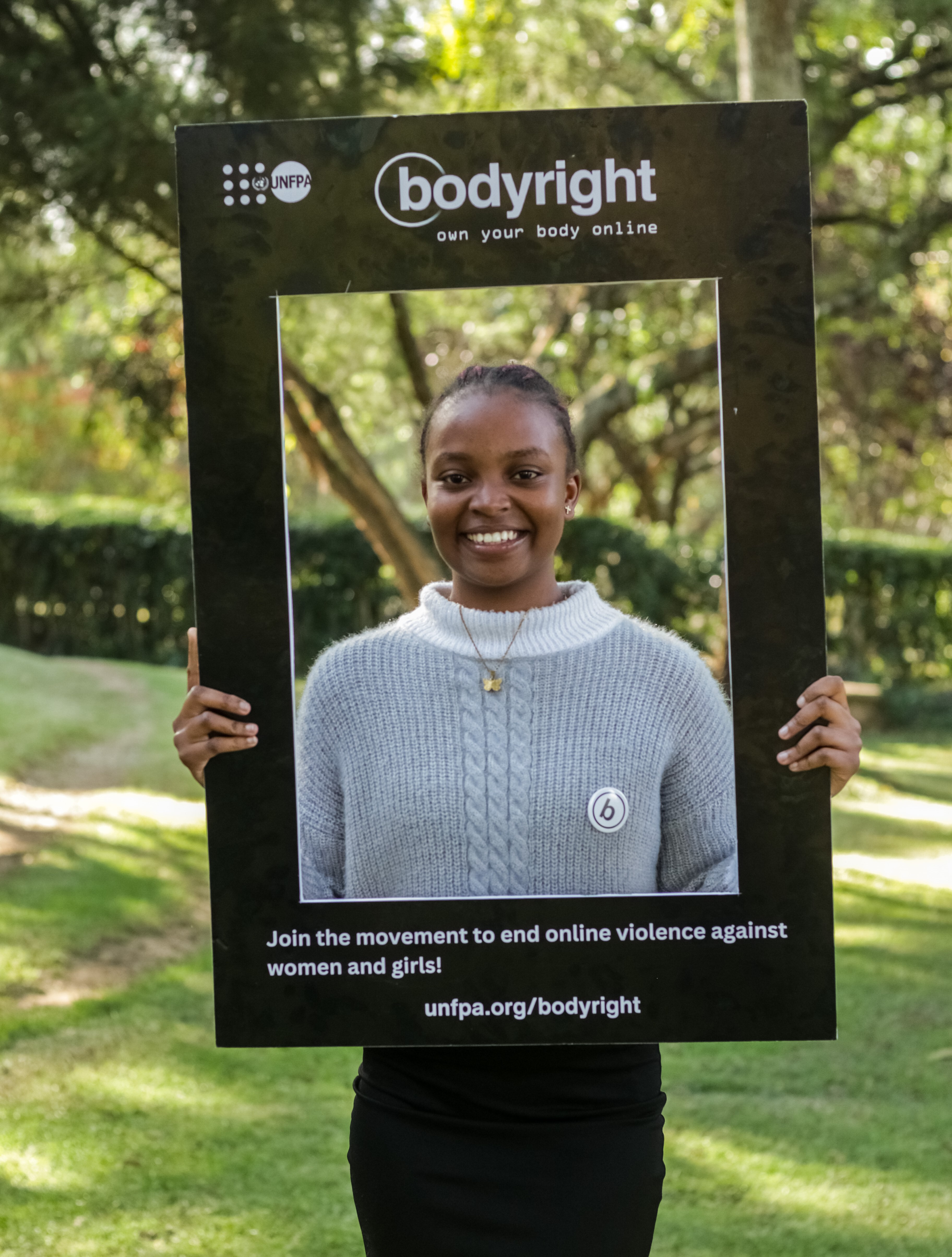
for an end to online harassment and cyberbullying on campus.
Similarly, Faith Mumbi, a student at the same university experienced online abuse that almost turned into physical harm. “Because body shaming has been such a big problem affecting young women on our campus, we started a body positivity campaign where we shared videos on social media encouraging students to embrace body positivity,” she says. While the campaign was well received by many, others took the opportunity to make derogatory slurs against the women featured in the videos and the campaign organizers.
“I approached one of the young men on campus who had made particularly offensive remarks, hoping that I could convince him to take it down. The conversation did not go well and he threatened to physically assault me,” she says.
Globally, 85% of women reported witnessing digital violence, and nearly 40% have experienced it personally. Like in Yvonne and Faith’s case, digital violence and online abuse is typically highly sexualized and takes many forms including cyberbullying, cyber flashing, doxxing, hate speech, and non-consensual use of images and video, such as deepfakes. People are targeted with slurs, and in some cases, their images are subjected to demeaning non-consensual sexual acts.
Just like gender-based violence that occurs offline, digital violence is devastating to those who experience it. Nine out of ten women report online violence harms their sense of well-being, and over a third have experienced mental health issues due to online violence.
“I fell into a depression because I could not believe some of the things that people were saying about me online,” says Yvonne. “I no longer cared about the elections or school, and I just wanted to hide away in my room because of the shame and embarrassment.” For both Yvonne and Faith, the experience curtailed their self-expression on online and social media spaces, affecting their ability to fully participate in student life.
Working in collaboration with the UNFPA Youth Advisory Panel for Kenya, the UNFPA Kenya office visited the Egerton University campus in Nakuru County to sensitize students on the rising tide of digital violence, and how they can build safer communities for women and girls online. The highly interactive session featured talks on identifying forms of online violence, staying safe online, as well as safeguarding mental health in an increasingly digital world.
Students were also introduced to UNFPA’s Bodyright campaign which seeks to inspire action against online violence by calling on policymakers, tech companies, and social media platforms to take image-based abuse and online misogyny as seriously as they take copyright infringement.
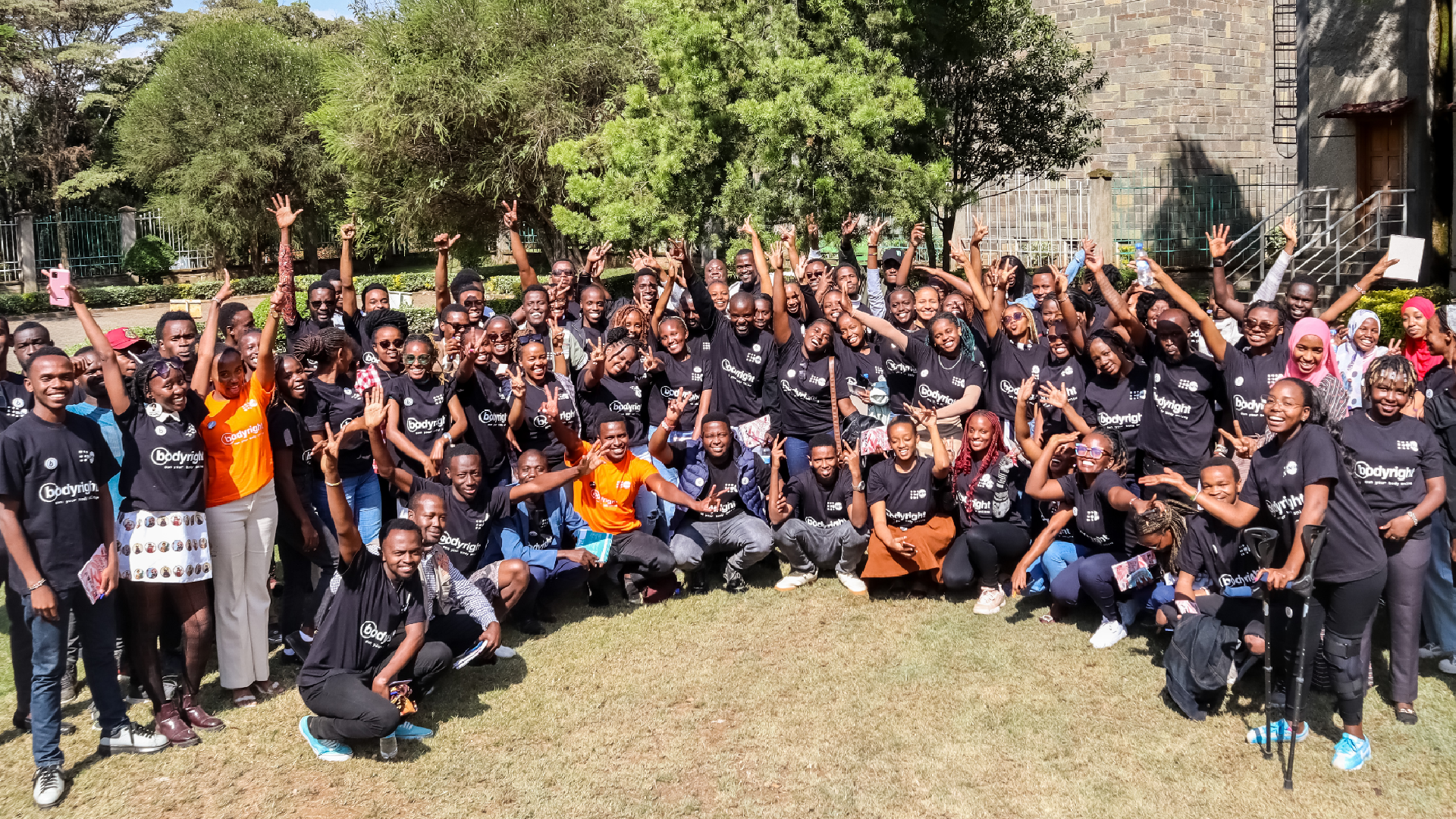
Young male students who had also endured online harassment came forth with their stories, sharing the impact that digital violence has had on their mental health. “As a man, I know that I am privileged because the attacks on me were not as derogatory as what happened to the female students,” said 22-year-old Ian Ngwata. “However, the internet can often be a toxic space for young people, and we need to work together to make sure that people are not driven off these platforms or silenced based on their gender.”
Bodyright is the first ‘copyright’ mark to assert and demand protection from digital violence. The core of this online and social media campaign from UNFPA is a social movement that asks us all to take gender-based online violence seriously and work together to drive real change and online protections for every girl, woman, and young person, everywhere.
Visit unfpa.org/bodyright to learn more.

